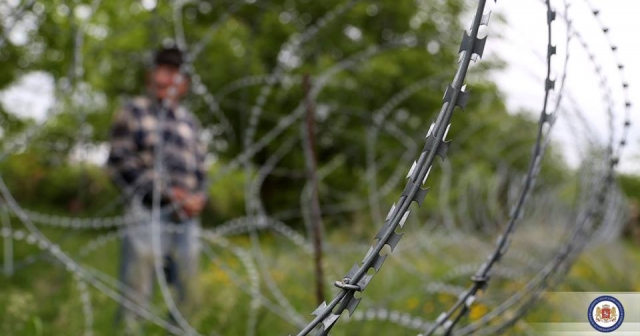UK Foreign Office: Human Rights Situation in Georgia's Occupied Regions Deteriorated
The new report of the UK Foreign and Commonwealth Office assesses the situation in terms of human rights and democracy around the world.
Along with other important issues worldwide, it also refers to the sharp deterioration in the human rights situation in the occupied regions of Georgia.
One of the main messages of the report is that the global landscape may be forever changed by the coronavirus.
"It has certainly shone a stronger light on the necessity for greater international cooperation. And it has underscored the need for British leadership, as doughty defenders of the rules-based international system, human rights and democracy. So in 2020 and beyond, we will continue to work alongside our international partners as a global force for good, dedicated to making a real and lasting difference to the poorest, the oppressed, and the most vulnerable throughout the world.
"Across the spectrum of human rights, to end discrimination for all, we have sought to bring renewed focus to issues and build alliances. The UK took on the role of chair of the Equal Rights Coalition last summer and we have ambitious plans to re-energize its work and tackle injustices. As recent events have shown, the scourge of racism still plagues the world and we should renew our commitment to tackling its root causes in our battle for equality. We continue to strive for the eradication of modern slavery by 2030. Our Call to Action to end Forced Labour, Modern Slavery and Human Trafficking has now been endorsed by over 90 countries, and we have appointed Jennifer Townson as our new International Migration and Modern Slavery Envoy," reads the publication.
The report further highlights that looking back on 2019 provides a stark reminder of just how much COVID-19 has changed our lives. Measures taken by states recently around the world to control the virus have had profound effects on people’s freedoms and rights. The crisis has had a particularly significant impact on the most vulnerable and marginalized.
"For me, COVID-19 has also served as a reminder to us all of the interdependency of humanity. From our homes and our towns to nations and internationally, the need for us to work together to overcome shared challenges has never been greater. So, as we evaluate priorities and re-examine relationships to build back better and greener, it is vitally important that we, as citizens of the world, not only reclaim our human rights but work to strengthen them," reads the foreword by the Minister of State for Human Rights, Lord (Tariq) Ahmad of Wimbledon, the Prime Minister’s Special Representative on Preventing Sexual Violence in Conflict.
With regard to Georgia, the report emphasizes that in the country's breakaway regions of Abkhazia and South Ossetia, increased Russian interference led to a sharp deterioration in the human rights situation.
"Continued closure of the majority of crossing points along the Administrative Boundary Line raised tensions and resulted in frequent detentions and severe restrictions on freedom of movement, affecting livelihoods, education, and access to healthcare. Discrimination against ethnic Georgians and intimidation of members of civil society continued. The UK supported Georgian resolutions at the UN General Assembly on internally displaced persons and at the UN Human Rights Council requesting access for the Office of the UN High Representative for Human Rights”, it reads.
Read the full report here
By Ana Dumbadze












